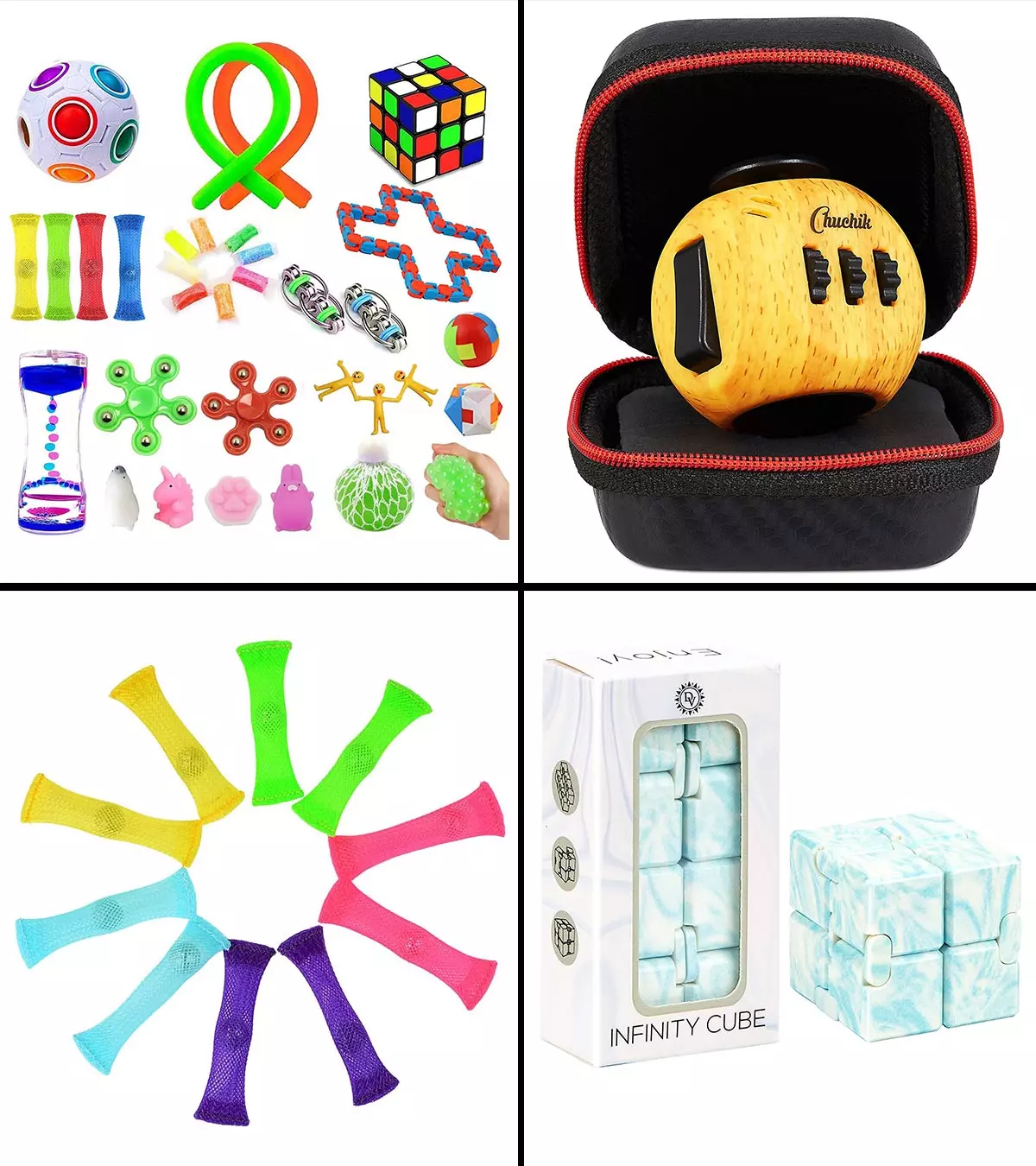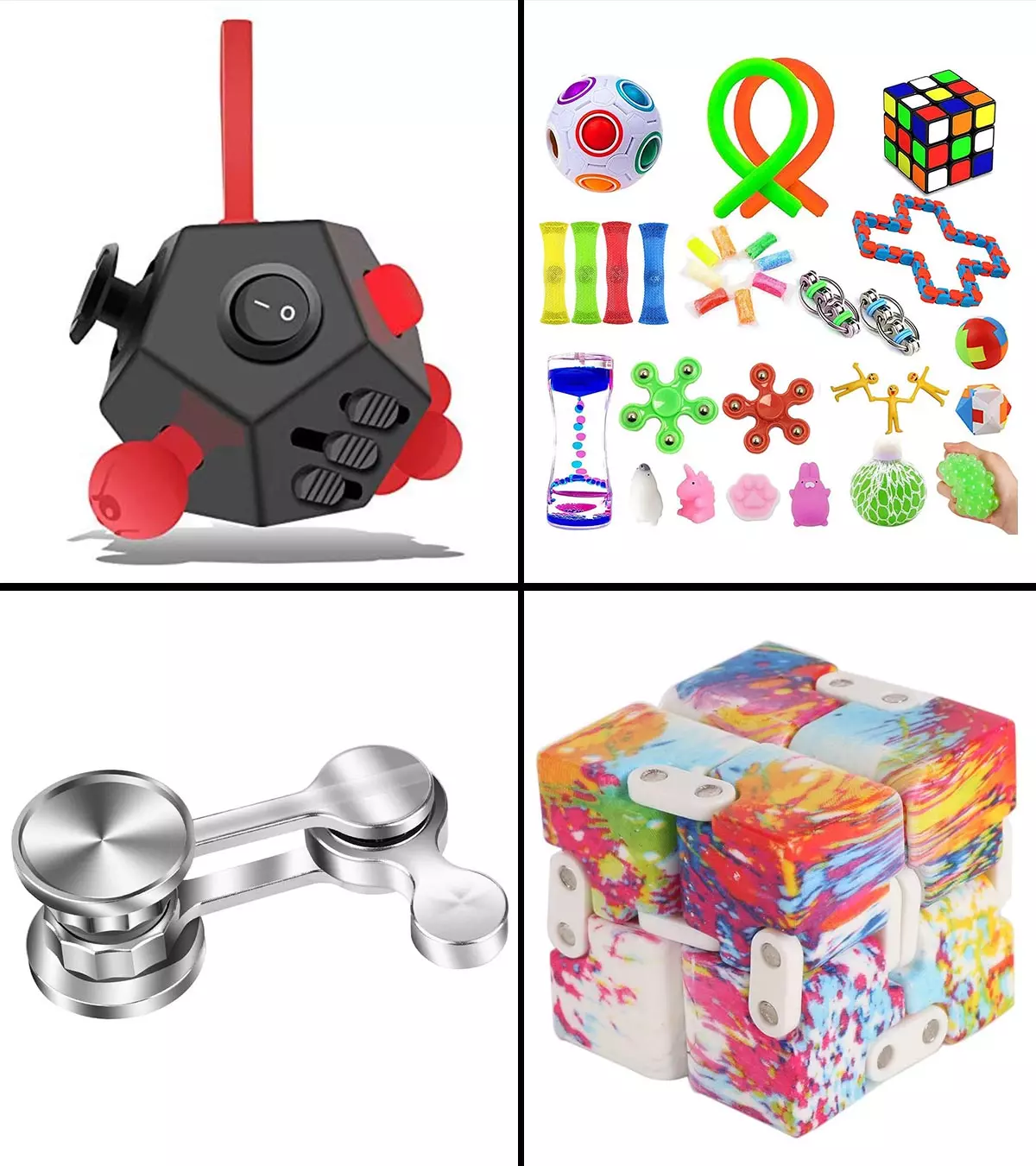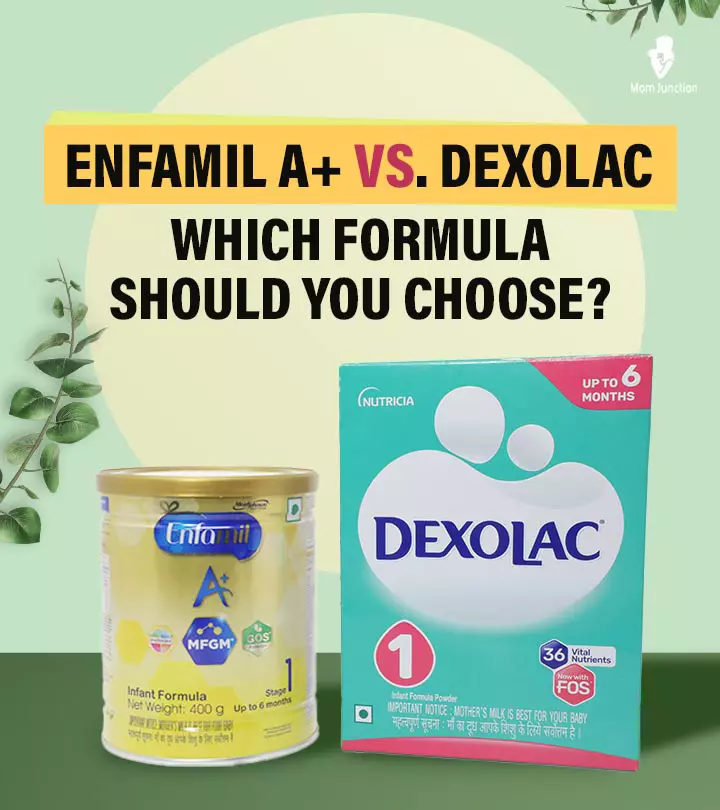
Enfamil A+ Vs. Dexolac: A Comparison Of The Two Infant Formulas
Mother’s milk is preferred over infant formula milk as it provides all the nutrients a baby needs. Unfortunately, some moms may be unable to feed their babies with breast milk due to medical conditions, low breast milk supply, or other valid reasons. So, in such cases, new moms generally feed formula milk to their babies. They look for infant formula that offers vital nutrients to support the baby’s growth, boost immunity, and ease digestion.
In this article, we provide you with a detailed comparison of two renowned stage 1 formula milk powders–Enfamil A+ and Dexolac. To understand which formula is better, let’s check out the details of the two infant formulas.
Enfamil A+ Stage 1 Infant Formula
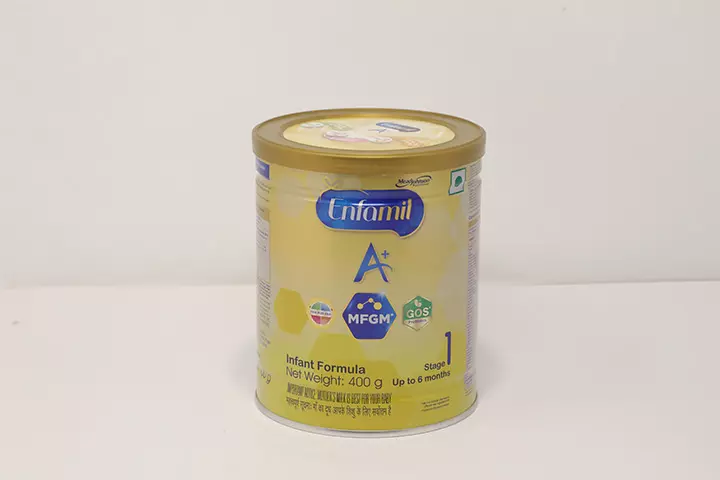
Enfamil A+ stage 1 infant formula is formulated to provide vital nutrients to a growing baby and help with their physical and cognitive development. The formula contains optimal levels of ARA and DHA as per the WHO recommendations. ARA (arachidonic acid) and DHA (docosahexaenoic acid, aka Omega-3 fatty acid) help with brain development in infants and boosts the immune system (1) (2) (3).
The formula is also fortified with MFGM (milk fat globule membrane), which helps in fat digestion, and galactooligosaccharides (GOS prebiotics), which support a healthy gut. Additionally, Enfamil A+ provides 500kcal per 100g and includes vitamins B12, C, E, K, D2, choline, and more for the infant’s overall growth.
Price
₹799 (400g)
Key Ingredients: Lactose, skim milk powder, milk fat, vegetable oils, DHA, ARA, MFGM, GOS prebiotics
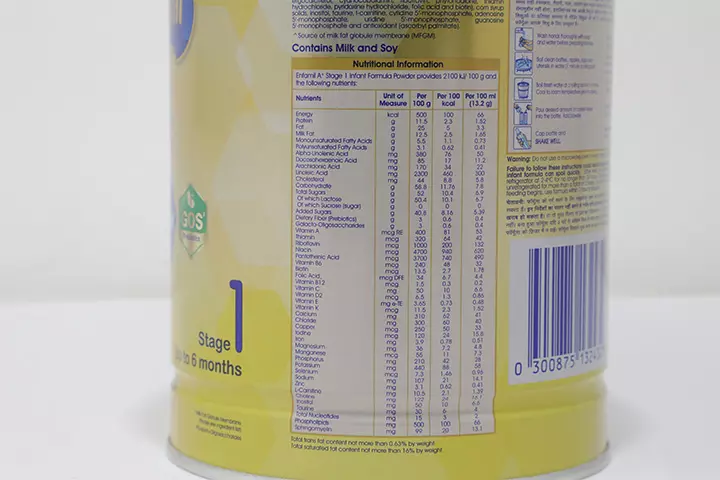
How Often Should I Use It?
You may give the Enfamil A+ stage 1 infant formula to your infant daily, after consulting your child’s doctor. Ensure you prepare it as per the manufacturer’s instructions on the label.
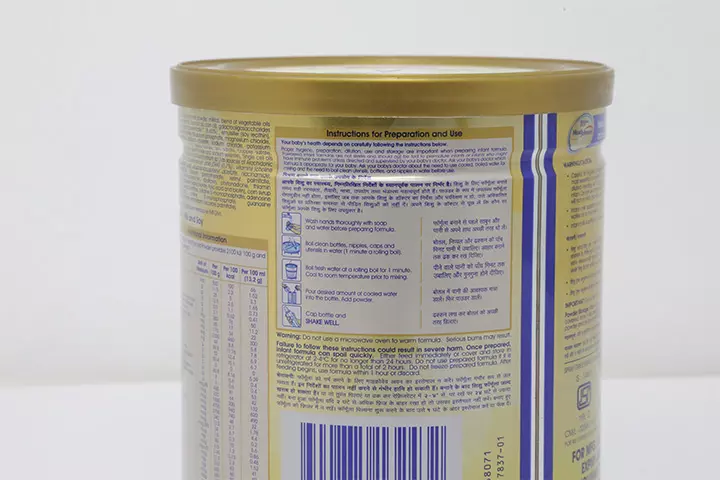
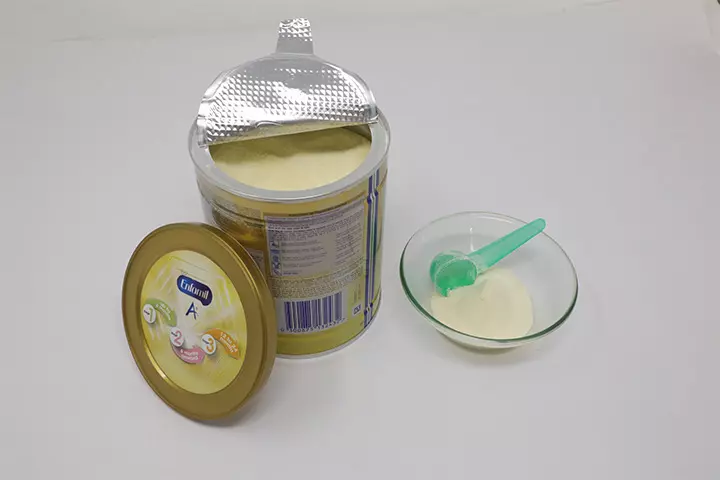
Pros
- Packed with vital nutrients
- Easy to digest
- Comes in a tin pack, which eliminates the need for an additional storage container
- Includes a lid to protect it from moisture
- Simple instructions on the packaging
- Suitable for vegetarians
Cons
- May not be available in larger packs
- Contains added sugars
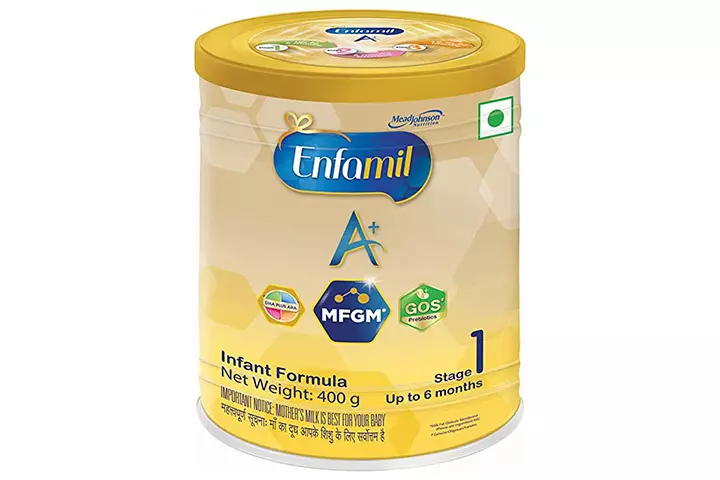
Enfamil A+ Stage 1 Infant Formula
Buy On AmazonNutrica Dexolac Stage 1 Infant Formula
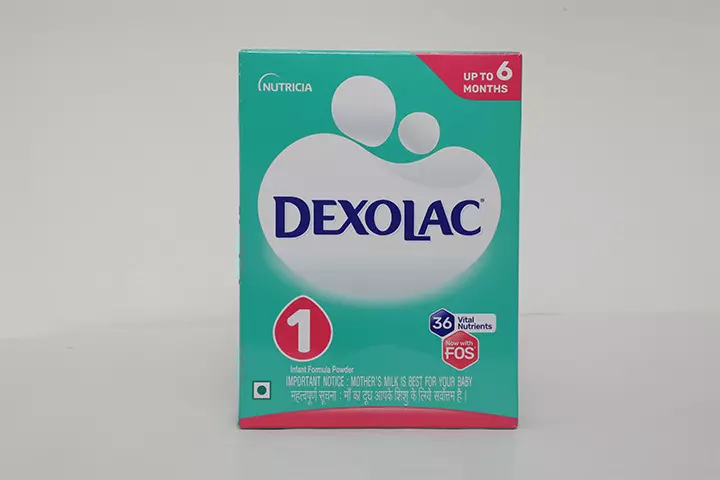
Nutrica Dexolac stage 1 infant formula contains 36 vital nutrients to support your baby’s overall growth and development. It is fortified with whey protein and FOS (fructooligosaccharide), which improve gut health and enhance mineral absorption. The FOS in the iron-fortified formula helps enhance lactobacilli count, decrease the occurrence of watery or hard stools, and soften stools. This infant formula also has other nutrients, such as calcium, vitamin D, and magnesium, which help strengthen bones.
Price
₹410 (400g)
Key Ingredients: Partially skimmed milk, lactose, edible vegetable oils, such as corn oil and canola oil, demineralized whey protein, FOS, minerals, vitamins, taurine, acidity regulator (sodium hydroxide)
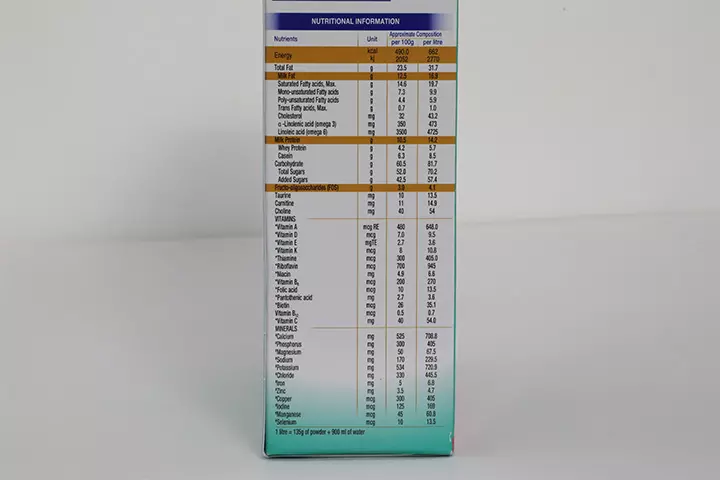
How Often Should I Use It?
Give this formula milk to your infant daily. It can be used as a substitute for mother’s milk if the baby is not being breastfed. Follow the instructions on the box to offer your infant the right amount of formula.
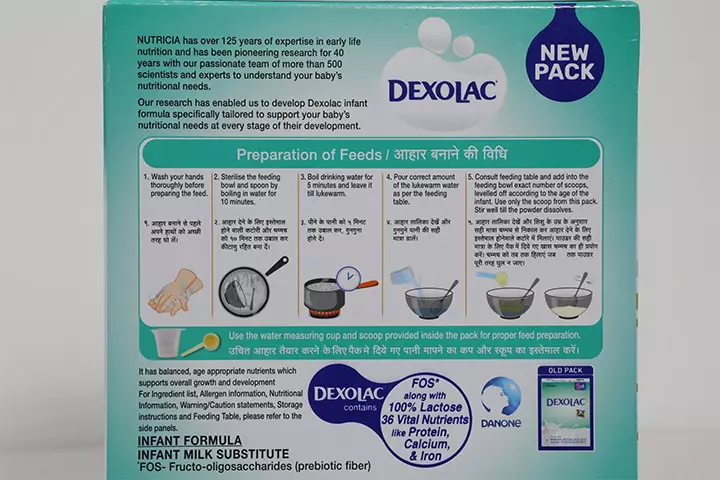
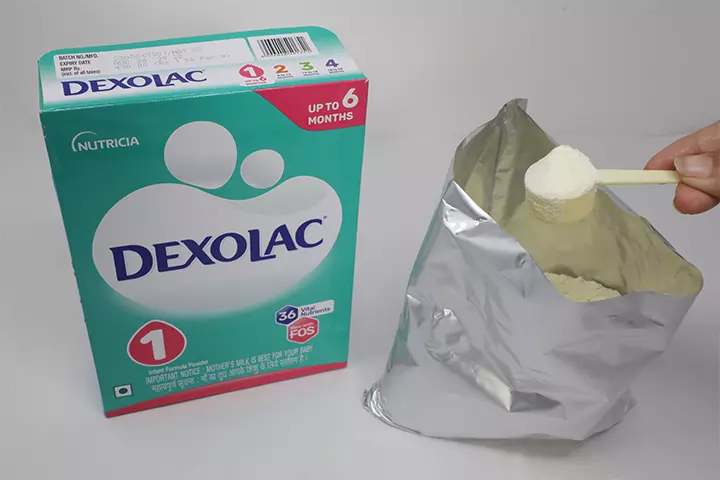
Pros
- Suitable for vegetarians
- Easily digestible
- Helps boost energy levels and supports the baby’s growth
- Has easy-to-understand instructions on the packaging
- Sealed packaging to prevent moisture
- Improves mineral absorption
Cons
- Contains added sugars
- May not be suitable for babies with lactose intolerance
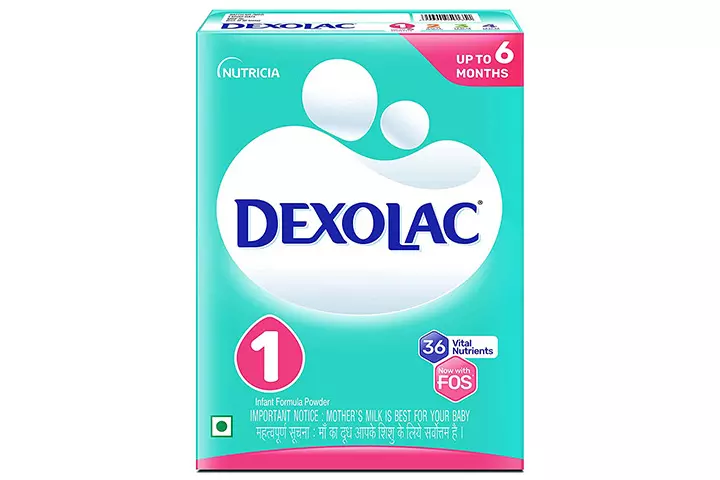
Nutrica Dexolac Stage 1 Infant Formula
Buy On AmazonEnfamil A+ Vs. Dexolac
Similarities
- Enfamil A+ and Dexolac are easily digestible.
- Both formulas are suitable for vegetarians.
- Both products are intended for babies below six months.
- Both formulas provide similar amounts of energy.
Differences
- Dexloac is slightly cheaper than Enfamil A+.
- Enfamil A+ has prebiotics, DHA, and ARA, while Dexolac has FOS.
- Dexolac has a higher iron content when compared to Enfamil A+.
- Enfamil A+ has no whey protein, while Dexolac has 4.2g of whey protein per 100g powder.
Final Thoughts
No baby formula can replace mother’s milk. However, if you are unable to breastfeed your baby, these formulas can be good substitutes to breast milk and can provide essential nutrients for your baby’s growth. While both these formulas contain iron, calcium, folic acid, and vitamins, they differ in terms of added nutrients such as whey protein, FOS, DHA, and prebiotics. Consider the one suitable for your baby after consulting your baby’s doctor.
Winner
Mother’s milk should be your infant’s primary source of nutrition and formula milk the secondary source. The formula powders we have compared are packed with nutrients helpful for a baby’s growth.
Enfamil A+ has DHA, which is usually found in mother’s milk. It also has prebiotics and ARA to support your baby’s growth and immunity. Dexolac, on the other hand, contains whey protein, casein protein, vitamins, minerals, and FOS, which support your baby’s overall growth and development besides aiding digestion. If your baby has trouble digesting formula milk, Dexolac could be a good option as it helps soften stools.
Remember that not all formula milk powders are created equal, and some may not suit your baby in terms of taste or effectiveness. So, consult your baby’s doctor for a detailed analysis and learn about the ingredients.
Frequently Asked Questions
1. What is the age limit for using Enfamil A+ or Dexolac stage 1?
Enfamil A+ or Dexolac stage 1 is formulated for babies aged zero to six months. Babies above six months should switch to stage 2 formulas.
2. Do Enfamil A+ and Dexolac cause any potential side effects or allergies?
Enfamil A+ and Dexolac infant formulas contain milk and soy. So, if your baby is allergic to any or both of these ingredients, you may consider switching to a hydrolyzed formula.
3. How do Enfamil A+ and Dexolac differ in terms of immune-boosting properties?
Formula milk may not provide the antibodies or all of the benefits of breast milk. However, Enfamil A+ has DHA, ARA, and prebiotics that help boost immunity and support an infant’s overall development. Dexolac has 36 vital nutrients that assist in the baby’s growth and support immune function.
4. Can Enfamil A+ or Dexolac be used as a sole source of nutrition for infants with weakened immune systems?
No, formula milk should not be used as a single source of nutrition for immunocompromised infants because a formula may not offer all the required antibodies to combat diseases. Thus, always consult a pediatrician and take their recommendation.
5. Are Enfamil A+ and Dexolac suitable for infants with specific health conditions or special dietary needs?
If your infant has specific health conditions or dietary requirements, consult a pediatrician and follow their guidelines in choosing the right formula milk.
References
- Kevin B. Hadley et al.; (2016); The Essentiality of Arachidonic Acid in Infant Development.
https://www.ncbi.nlm.nih.gov/pmc/articles/PMC4848685/ - Do DHA Supplements Make Babies Smarter? Yes, No, Maybe…
https://womensmentalhealth.org/posts/dha-supplements-make-babies-smarter-yes-no-maybe/ - Brian A. Juber et al.; (2016); Breast milk DHA levels may increase after informing women: a community-based cohort study from South Dakota USA.
https://www.ncbi.nlm.nih.gov/pmc/articles/PMC5273852/#
Community Experiences
Join the conversation and become a part of our nurturing community! Share your stories, experiences, and insights to connect with fellow parents.
Read full bio of Vibha Navarathna
Read full bio of Pratibha Bagdy
Read full bio of Riya Saini













